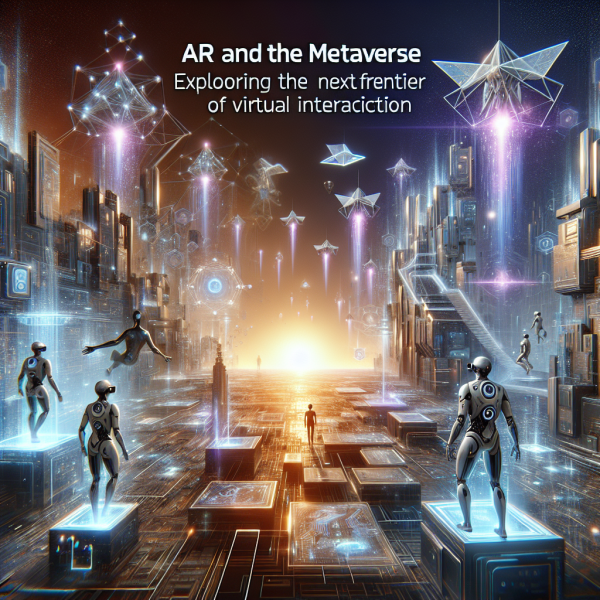Smart Cities of Tomorrow: Integrating Blockchain for Urban Development and Management

As the world continues to urbanize at an unprecedented rate, the need for innovative solutions to manage urban spaces more effectively has never been more crucial. The concept of smart cities has emerged as a beacon of hope for sustainable urban development, leveraging advanced technologies to improve the quality of life for residents, enhance economic growth, and optimize resource management. Among these technologies, blockchain stands out as a powerful ally that can revolutionize urban management and development.
Understanding Smart Cities
Smart cities utilize Internet of Things (IoT) devices, data analytics, and other technologies to create interconnected systems that facilitate better governance, service delivery, and citizen engagement. These cities aim to harness data to make informed decisions regarding traffic management, waste disposal, energy consumption, healthcare services, and more. The integration of renewable energy sources and green infrastructure also plays a critical role in making cities more sustainable and resilient.
The Promise of Blockchain
Blockchain technology allows for the secure, transparent, and immutable recording of transactions across a decentralized network. Unlike traditional databases, which can be vulnerable to hacking or central control, blockchain’s distributed ledger technology can enhance the security and trustworthiness of data. This feature is particularly beneficial for the complex and multifaceted systems that underpin smart cities.
Enhancing Urban Management with Blockchain
-
Transparent Governance
Blockchain can facilitate greater transparency in local government operations. By employing smart contracts—self-executing contracts with the terms of the agreement directly written into code—citizens can track government expenditures, contracts, and project timelines in real-time. This not only builds trust between residents and city officials but also promotes accountability and reduces opportunities for corruption.
-
Data Integrity and Security
Smart cities depend heavily on data—from traffic patterns to energy usage. By using blockchain to secure this data, city planners can mitigate risks associated with data breaches or tampering. Blockchain’s inherent characteristics ensure that once data is entered and verified, it cannot be altered, thereby maintaining its integrity. This aspect is crucial, particularly when sensitive data relating to public health or personal information is involved.
-
Efficient Resource Management
The deployment of blockchain in urban infrastructure can lead to more efficient management of resources. For example, energy consumption can be tracked and managed using blockchain technology. Decentralized energy grids, where citizens produce and sell excess energy, can be easily monitored and regulated through blockchain, ensuring fair transactions and optimal energy distribution.
-
Smart Transportation
Blockchain can facilitate the development of smarter transportation systems. By recording vehicle utilization and traffic patterns on a blockchain, cities can better understand transit trends, leading to informed decisions around improvements and expansions of public transport networks. Car-sharing services can also benefit from blockchain by using smart contracts to automate rental agreements and payments, enhancing the user experience.
-
Sustainable Urban Planning
Urban development is often marred by fuel-intensive construction methods, logistical challenges, and environmental concerns. Integrating blockchain can streamline planning approval processes, ensuring compliance with environmental regulations while reducing bureaucracy. With token-based incentives, cities can promote sustainable practices among developers, encouraging them to adopt eco-friendly materials and practices.
Challenges to Integration
Despite its immense potential, the integration of blockchain technology into urban development faces several challenges. These include:
-
Interoperability: Different blockchains and legacy systems may not communicate effectively, creating silos of information.
-
Scalability: The current capabilities of blockchain technology may struggle to handle real-time data for an entire urban environment.
-
Regulatory Hurdles: Government regulations surrounding data privacy, banking, and technology innovation could impede the seamless integration of blockchain solutions.
- Public Awareness and Acceptance: For successful implementation, cities must educate their residents about blockchain technology, addressing concerns about privacy and the changing landscape of service delivery.
Real-World Implementations
Several cities around the world have started exploring the integration of blockchain into their smart city frameworks. For example, Amsterdam has employed blockchain to enhance its system of decentralized energy use, while Dubai aims to become the world’s first ‘blockchain-powered’ city, with initiatives that include digitizing all government documents and transactions on a blockchain.
Conclusion
As urban spaces continue to evolve, the integration of blockchain into the smart city paradigm presents a promising avenue for creating more transparent, secure, and efficient urban environments. By leveraging this innovative technology, cities can not only enhance their operational efficiencies but also foster a sense of trust and collaboration among residents. The smart cities of tomorrow will undoubtedly rely on blockchain to navigate the complexities of urban development and management, paving the way for a more sustainable and responsive urban future.













